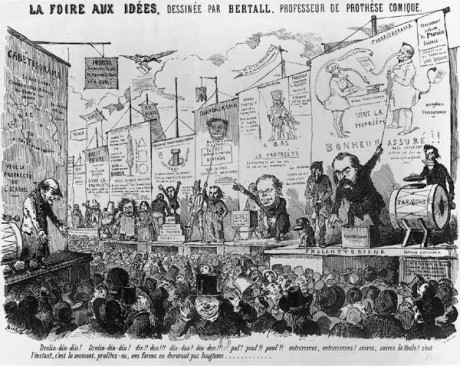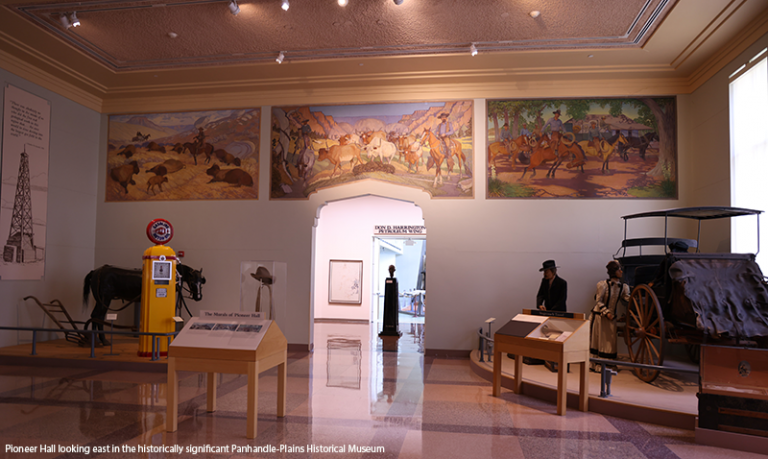
image from The Market of Ideas www.college.columbia.edu.
The center of every university experience worth its salt is a grounding in the fundamentals of the human condition. For full and lasting impact on students, it should also be rigorous and challenging. Studies in history, literature, mathematics, “readin’, writin’ and arithmetic” are more important now than at any time since the Second World War. The Core Curriculum, sometimes called General Education, was born in the German Polytechnics. The concept crossed the Atlantic to Manhattan, taking root at Columbia University in 1895, as the Gymnasium Program. It has changed dramatically, some claim diminished, as politically charged requirements to meet various contemporary social trends have overpowered the clarity of the original models.
As legitimate pressure from boards and elected leaders regarding the applicability of a university education grows, particularly as costs skyrocket, the workplace value of general studies is questioned. The ability of a person to interpret the Constitution of the United States, the Bible, algebraic expressions, or Melville’s symbolism in “Moby Dick” seems nice, but unnecessary.
You will not find a stronger proponent for practicality in a college education. However, when immediate utility exists without an appreciation for the broader social context in which the marketplace thrives or withers, value and utility fall. Market forces, vocational training, immediate skill-based employability do nothing to diminish the value of a strong core curriculum. In fact, they reinforce it.
A few years ago, I endeavored to help a student gain transfer hours from Jiliang University in Hangzhou, China. The student had no course in multiculturalism. He did have 12 hours of required Maoist philosophy, accepted by our university as college-level philosophy. He was also an accomplished speaker of Mandarin, passed the Tests of English as a Foreign Language, had a stellar academic record, had an excellent portfolio of architectural work and had traveled to nine countries. The argument from the Core Curriculum Oversight Committee was that these experiences did not satisfy the core curriculum multicultural requirement. The student did not need a course in multiculturalism. He lived a multicultural life. The very thing he sought to escape, the numbness of communist bureaucracies, hit him upside the head in the place he sought for the freedom to study. The point of this story is that too many core curricula, driven by narrow-mindedness, do not recognize the student as a human being with diverse life interests and experiences.
Core curriculum courses that emphasize topical aspects of the human experience to satisfy vocal political groups may have low long-term applicability and represent a fleeting fashion or sign of the times, rather than something of lasting value. Highly focused areas of interest are free online as avocations or pursuits of passion.
Randall Stross, professor at San Jose State University, argues forcefully in “A Practical Education: Why Liberal Arts Majors Make Great Employees” for the value of a rigorous liberal arts education. Edgar Bronfman, former CEO of the Seagram Corporation, also believes there is great value in a liberal arts education.
The manufactured dichotomy between an effective liberal arts and science experience and vocational expertise is a mirage according to a Harvard Business Review essay. The mutually supportive coexistence of applicable technical ability and critical thinking skills is the basis of a quality liberal arts experience. It is inarguable. Even Mr. Bronfman wants his distillers to understand the technicalities of chemical reactions. The 115,000 janitors, 83,000 bartenders, 35,000 taxi drivers and 16,000 parking lot attendants (all noble professions) that held bachelor’s degrees in 2012 did not all major in humanities and liberal arts disciplines but many areas of study.
In 1976, on the campus of Louisiana State University in a restroom at Hill Memorial Library, a young man had penned these words on the wall, “The problem with this place is everybody is trying to change the way you think.” (Expletives revealing the depth of dissatisfaction have been excised.) I reflected on his observation the rest of that day.
The next day, I returned to the same place. Under the angry epithet was a more reflective proposition from another scribe in response to the first. ”If they don’t, demand your money back.” The second scribe completed the thought and revealed his understanding of a university’s job. I have reflected on these two observations from that day until this. Helping students learn to think clearly and reflectively and gain skills that will sustain life intellectually and materially is first purpose.
I started my studies, although I might not have said it exactly this way, “To learn to think like an architect.” That’s what I paid for. The core curriculum, coupled with excellent disciplinary training, provides a springboard to a thoughtful vocation and sound educational value for all who come calling.
A dedicated prospective student should find a challenging university that provides the opportunity to think and to do. Follow head and horse sense, you know, the balance of reason and experience ingrained in many by grandparents. Rigor, diligence and performance, valuable in every workplace, should be the core of every curriculum.







Very insightful article though Mao’s “Little Red Book” should be essential reading for any respectable Core Curriculum Humanities course that would compare the Yunan Forum with other ways of understanding Literature.
I was fascinated to note that you say:
“The center of every university experience worth its salt is a grounding in the fundamentals of the human condition.”
And yet you do not mention biology!
“I have reflected on these two observations from that day until this. Helping students learn to think clearly and reflectively and gain skills that will sustain life intellectually and materially is first purpose.”
Right on the nose. Now solve the problem faced by faculty of several disciplines.
Which course of study gains the end you seek. Do we invent a course or allow the department to fight over the outcome. My entire approach to thinking has been the result of my training in debate, reasoning, etc. Is that what you are talking about?
SIU is about to enter a new world, as y ou probably know. What courses would you pick (or what direction ). You are writing well and having fun. I can tell.